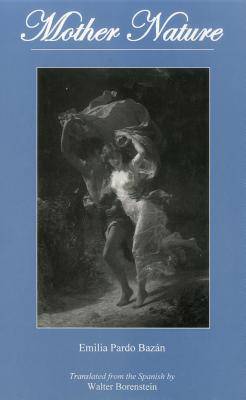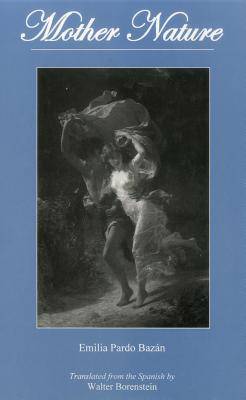
Door een staking bij bpost kan je online bestelling op dit moment iets langer onderweg zijn dan voorzien. Dringend iets nodig? Onze winkels ontvangen jou met open armen!
- Afhalen na 1 uur in een winkel met voorraad
- Gratis thuislevering in België vanaf € 30
- Ruim aanbod met 7 miljoen producten
Door een staking bij bpost kan je online bestelling op dit moment iets langer onderweg zijn dan voorzien. Dringend iets nodig? Onze winkels ontvangen jou met open armen!
- Afhalen na 1 uur in een winkel met voorraad
- Gratis thuislevering in België vanaf € 30
- Ruim aanbod met 7 miljoen producten
Zoeken
Omschrijving
Mother Nature (1887) is the sequel to Emilia Pardo Bazán's most famous novel, The House of Ulloa, written one year earlier. It continues where the earlier work left off, when the priest, Julian, who had vainly struggled to protect the life and interests of the doomed mother of Manuela, sees the girl cavorting through the meadow with Perucho, who will turn out to be her half-brother. The reader will follow the course of the ill-starred relationship between the two, which turns from childish affection to romantic love.
Pardo Bazán's novel demonstrates the impact of the incipient social and biological sciences on creative writing, thus reflecting the influence of Émile Zola's Naturalistic tendencies, while still maintaining tinges of Romanticism. It addresses questions that remain very contemporary and controversial, and poses the opposition of nature to virtue, romantic love as ennobling or basely instinctual, and gives the reader an example of the problem of incest and other forms of sexual transgression. She recognizes the role of religion and its influence on morality, the conflict between regional and centralized culture, the contrast between rural and urban visions of life, as well as the eternal struggle of women for better education, freedom, and self-determination. The pages of the novel contain some of the finest examples of her literary craft, and give evidence of its expressive dialogue, dramatic tension, and vivid portrayals of characters, scenes, and situations.
Pardo Bazán's novel demonstrates the impact of the incipient social and biological sciences on creative writing, thus reflecting the influence of Émile Zola's Naturalistic tendencies, while still maintaining tinges of Romanticism. It addresses questions that remain very contemporary and controversial, and poses the opposition of nature to virtue, romantic love as ennobling or basely instinctual, and gives the reader an example of the problem of incest and other forms of sexual transgression. She recognizes the role of religion and its influence on morality, the conflict between regional and centralized culture, the contrast between rural and urban visions of life, as well as the eternal struggle of women for better education, freedom, and self-determination. The pages of the novel contain some of the finest examples of her literary craft, and give evidence of its expressive dialogue, dramatic tension, and vivid portrayals of characters, scenes, and situations.
Specificaties
Betrokkenen
- Auteur(s):
- Uitgeverij:
Inhoud
- Aantal bladzijden:
- 264
- Taal:
- Engels
Eigenschappen
- Productcode (EAN):
- 9781611484007
- Verschijningsdatum:
- 1/08/2010
- Uitvoering:
- Hardcover
- Formaat:
- Genaaid

Alleen bij Standaard Boekhandel
+ 209 punten op je klantenkaart van Standaard Boekhandel
Beoordelingen
We publiceren alleen reviews die voldoen aan de voorwaarden voor reviews. Bekijk onze voorwaarden voor reviews.











